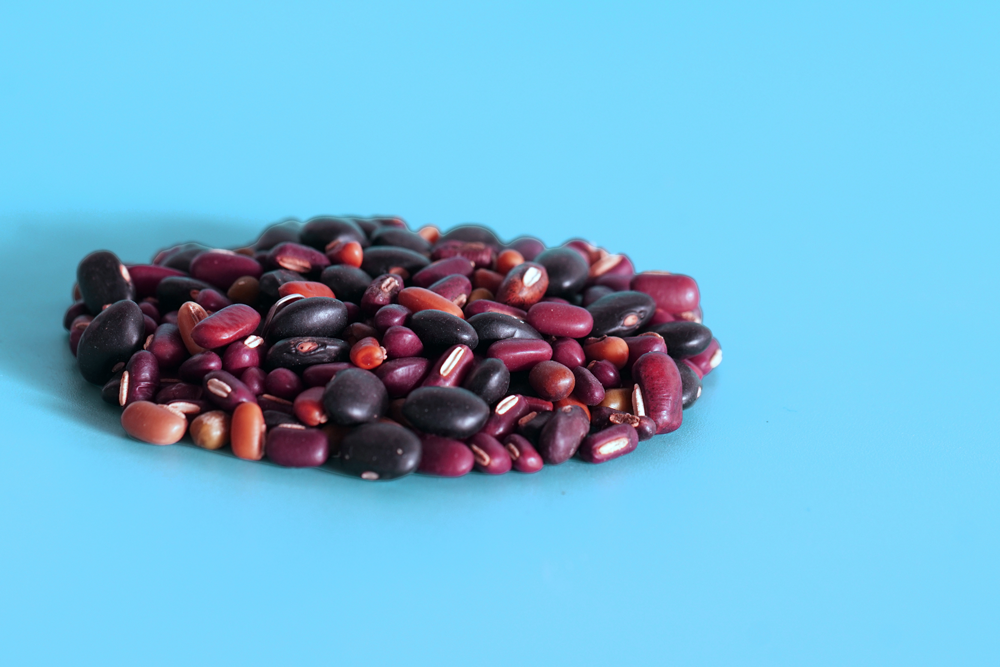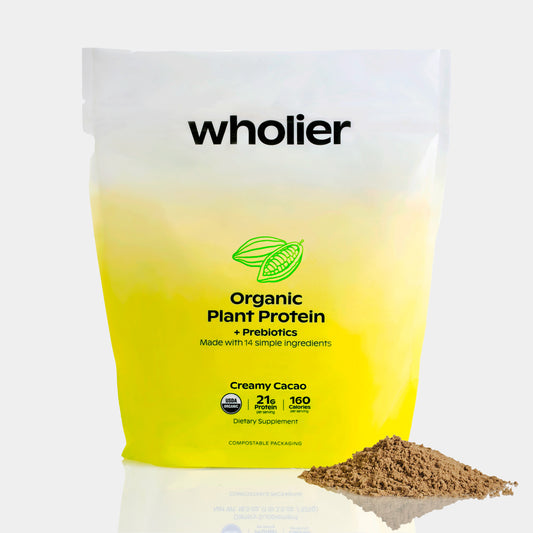
Navigating Protein Sources in a Vegetarian Diet
Embarking on a vegetarian journey often stirs up a flurry of questions. Among the chief concerns, one query routinely rises to the surface: "How much protein do I need?" It's a valid point to ponder, especially considering protein's critical role in our bodies. However, before we dive into the numbers, let's establish why protein is so pivotal in our diets and debunk a common myth surrounding protein sources in a vegetarian regimen.
Why is Protein So Crucial to Our Health?
The first question we need to answer is, why is protein so essential? Often referred to as the 'building blocks of life', proteins are large, complex molecules that play many critical roles in our bodies. They do most of the work in cells and are necessary for the structure, function, and regulation of the body's tissues and organs.(1) From building and repairing tissues to creating enzymes, hormones, and other bodily chemicals, protein is indispensable for our bodies to function properly.(2)
But what happens if we don't get enough of this vital nutrient? Protein deficiency can lead to several health problems, including muscle wasting, weakened immunity, and impaired growth and development in children.(3) The importance of protein, therefore, cannot be overstated.
Do Plants Provide Adequate Protein?
One common myth often encountered by vegetarians and vegans alike is the idea that plant-based diets are inherently deficient in protein. However, this notion couldn't be further from the truth. A multitude of scientific research shows that a well-planned vegetarian or vegan diet can provide all the protein our bodies need.(4)
Plant-based proteins, contrary to popular belief, can provide all the essential amino acids — the building blocks of protein — that our bodies need. While it's true that most plant foods do not contain all the essential amino acids in the same amounts as animal products, combining different plant proteins throughout the day can easily ensure a complete amino acid profile.(5)
What are the Top Sources of Protein for Vegetarians and Vegans?
So, where can you find rich sources of protein in a plant-based diet? There's actually a diverse range of foods to choose from. For instance, legumes like lentils, chickpeas, and black beans are protein powerhouses, providing about 15-20 grams per cooked cup.(6) Quinoa, a pseudo-cereal, provides all essential amino acids and around 8 grams of protein per cooked cup.(7) Other notable sources include tofu and tempeh, which can provide about 20 and 30 grams of protein per serving, respectively.(8)
Even vegetables can contribute to your protein intake. For example, a single cup of cooked spinach contains about 5 grams of protein, while the same amount of cooked broccoli offers about 4 grams.(9) Incorporating a variety of these foods into your daily meals can easily meet your protein needs.
How Much Protein Do Vegetarians and Vegans Need?
Now, the burning question: how much protein should vegetarians and vegans aim for? The Recommended Dietary Allowance (RDA) for protein for adults is 46 grams per day for women and 56 grams per day for men.(10) However, these values can fluctuate based on various factors such as age, sex, physical activity level, and overall health status.
In terms of body weight, it's generally suggested to consume 0.8 grams of protein per kilogram of body weight for sedentary adults.(11) For example, a sedentary person weighing 68 kilograms (around 150 pounds) would need about 55 grams of protein per day. However, those who are more physically active or have specific health goals may need more.
Template for Your Protein Needs
Now, let's craft a simple template to help calculate your specific protein needs. First, convert your weight from pounds to kilograms (one kilogram equals approximately 2.2 pounds). Then, multiply your weight in kilograms by 0.8 for a sedentary lifestyle, by 1.2 for moderate activity, or by 1.6 for heavy activity.(12) The resulting number will be your recommended daily protein intake. Keep in mind that this is a general guideline, and individual needs may vary.
Embracing a vegetarian or vegan lifestyle does not mean compromising on your protein intake. Science clearly supports that plants can provide ample protein to meet our needs. Variety is key: consuming different plant-based proteins throughout the day can ensure a complete amino acid profile. Remember to gauge your protein needs based on your weight and lifestyle. The important thing is to listen to your body and adjust your diet accordingly, ensuring you enjoy a nutrient-rich, balanced, and satisfying diet.
Sources:
(1) National Institute of General Medical Sciences. 2020. "Proteins." National Institutes of Health. website
(2) U.S. National Library of Medicine. 2021. "Protein in diet." MedlinePlus. website
(3) Semba, Richard D. 2016. "The Rise and Fall of Protein Malnutrition in Global Health." Annals of Nutrition and Metabolism. journal
(4) Craig, Winston J., and Ann Reed Mangels. 2009. "Position of the American Dietetic Association: vegetarian diets." Journal of the American Dietetic Association. journal
(5) Melina, Vesanto, Winston Craig, and Susan Levin. 2016. "Position of the Academy of Nutrition and Dietetics: Vegetarian Diets." Journal of the Academy of Nutrition and Dietetics. journal
(6) Messina, Virginia. 2014. "Nutritional and health benefits of dried beans." The American Journal of Clinical Nutrition. journal
(7) Jancurová, M., D. Minarovičová, and A. Dandár. 2009. "Quinoa—a review." Czech Journal of Food Sciences. journal
(8) Rizzo, Gianluca, et al. 2013. "Soy, Soy Foods and Their Role in Vegetarian Diets." Nutrients. journal
(9) U.S. Department of Agriculture. 2021. "FoodData Central." website
(10) Institute of Medicine. 2005. "Dietary Reference Intakes for Energy, Carbohydrate, Fiber, Fat, Fatty Acids, Cholesterol, Protein, and Amino Acids." The National Academies Press. [book](https




